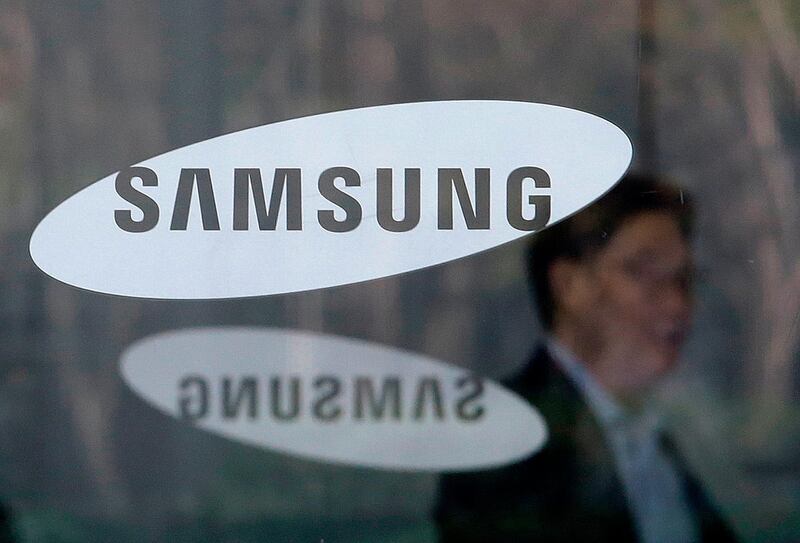Samsung Electronics exceeded analysts’ quarterly profit estimates on booming exports of memory chips, but warned of challenges in smartphone demand in the coming months.
Net income rose to 11.6 trillion won ($10.7 billion) in the three months ended March, the Suwon, South Korea-based company said in a filing Thursday, beating the 10.9 trillion won average of projections compiled by Bloomberg. Sales rose 20 per cent to 60.6 trillion won.
The results ease concerns of slowing demand for chips after a year of record profit that helped Samsung replace Intel Corporation as the king of semiconductors by revenue. The mobile business will see declining profitability amid weak demand, Samsung said. That won’t offer any solace to other global chip makers and suppliers for Apple, which have issued gloomy outlooks and seen their shares fall in the past two weeks. Samsung also warned of weaker demand for the screens used in Apple’s flagship iPhone X smartphone.
“Semiconductors are doing better and it sets the stage for a very strong second quarter,” said Sanjeev Rana, a Korea technology analyst at CLSA.
Samsung shares rose as much as 3.2 per cent in morning trade on Thursday. The stock has fluctuated this year on concerns of slowing chip and smartphone markets after they traded near record highs in 2017.
The mobile division, which rolled out its flagship Galaxy S9 smartphone in February, reported operating profit of 3.77 trillion won. But Samsung warned in a statement that its mobile business will see “stagnant sales of flagship models amid weak demand and an increase in marketing expenses” in the current quarter.
“Samsung is facing competition from every direction, from Chinese-based OEMs in the low- and mid-end segment and from Apple in the high-end segment,” said Jusy Hong, analyst for mobile devices at IHS Markit.
________
Read more:
[ Is now the time to abandon big tech stocks? ]
Dividends - the trillion dollar reason to stay invested in volatile times
_________
Samsung controls about two thirds of the global DRAM market. Samsung’s chips unit posted operating profit of 11.6 trillion won, according to the filing.
For the display business, Samsung reported profit of 410 billion won, saying that the result was “affected by slow demand for flexible OLED panels,” which are the screens used inside the iPhone X.
“Apple’s iPhone X shipments have actually been pretty bad, so everyone is looking to the next model cycle,” Mr Rana said.
Even though it warned of slow OLED demand, Samsung does anticipate — like some other Apple suppliers — a component rebound in the second half, when Apple typically releases new models. Apple is preparing to launch two new smartphones with OLED screens later this year: an upgrade to the iPhone X along with a larger version with a giant display. OLED screens are significantly more expensive than LCD displays, adding to the cost of smartphones that use the newer technology
Samsung’s stock will be suspended from trading from April 30 to May 3 for a 50:1 split approved at a shareholders’ meeting last month. The meeting ushered in a new generation of board members to help chart a path under Jay Y. Lee, a vice chairman who has led the company since his father Lee Kun-hee had a heart attack in 2014. The 49-year-old heir was released in February on a suspended prison sentence for a bribery conviction, which he plans to fight at the Supreme Court.






